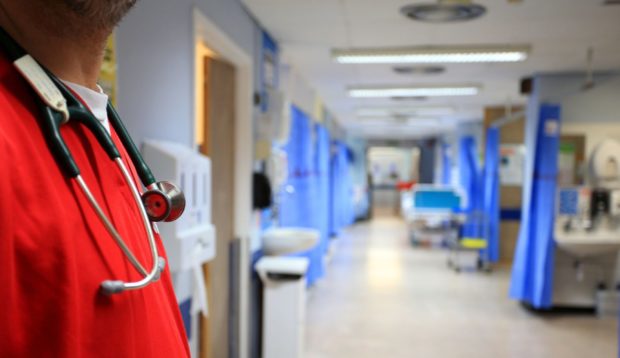The Scottish Government is intending on creating 139 trainee doctor posts across NHS services most in need of extra support.
They have committed £32 million to bringing additional workforce into services that have been under the greatest pressure during the pandemic recovery.
In recent weeks, the military has been called in to help teams in a number of health boards struggling to cope with increased winter patient numbers.
Currently, 44% of doctors working in the NHS across Scotland are trainees.
Services which will be supported by the new positions include cancer, anaesthetics, intensive care, public health and respiratory medicine.
Most successful applicants will begin their new roles in Autumn 2022.
Looking beyond the pandemic
Health Secretary Humza Yousaf previously acknowledged the ‘challenging circumstances’ facing NHS staff in the ongoing pandemic.
Following the announcement of the new trainee plan, he said the new roles look beyond the pandemic recovery into the longer term.
He said: “This significant expansion of trainee doctors underlines the Scottish Government’s commitment to support the NHS, not only in response to the pandemic but also as we look beyond and plan ahead to build long term resilience.
“Our healthcare staff have been vital in our response to Covid-19, which has reinforced the importance of ensuring we have the right staff in the right place at the right time.”
Psychiatry services will also be supported by the new funding, and new roles will begin in this area at the earlier date of February next year.
Mr Yousaf added: “The additional posts in psychiatry, the first of which will commence in February, will also provide vital support to the delivery of mental health services.”
A ‘very welcome’ announcement
Dr Miles Mack, chairman of the Scottish Academy of Medical Royal Colleges, said the announcement is one he has been waiting for.
He said: “This expansion of the number of doctors in training is very welcome and is an important step in beginning to address workforce shortages.
“We have been recommending an increase in training numbers for some time, and it is very encouraging that the Scottish Government has listened to advice and has responded.”
‘Best possible training’
Dr Mack added that the next step is making sure that the new trainees are properly prepared for their roles: “We now need to ensure that these doctors have a good training experience and that the consultants and GPs who train them have time to do so effectively.”
Medical director and deputy chief executive professor of NES, Stewart Irvine, said their programmes will continue to develop in order to ensure that this is the case.
He said: “We very much welcome this announcement of additional postgraduate training posts across a wide range of medical specialties for 2022 recruitment.
“NES will continue to develop our programmes to ensure that we offer the best possible training for those who choose to pursue their medical career in Scotland and to support our future NHS workforce needs.”
